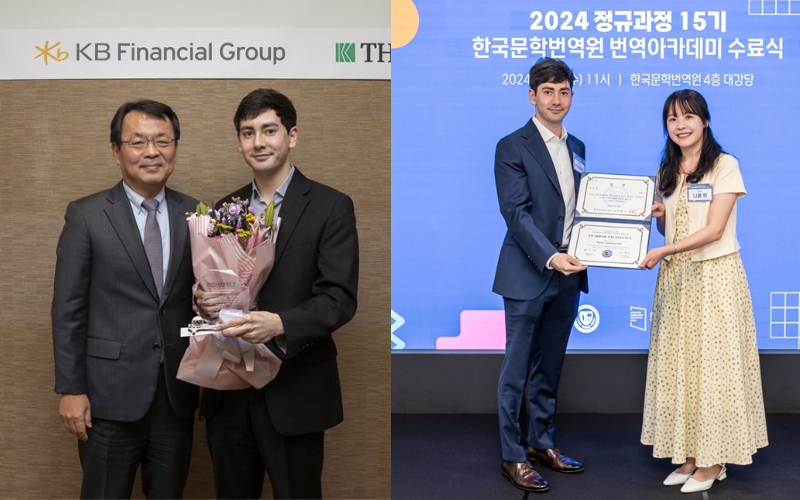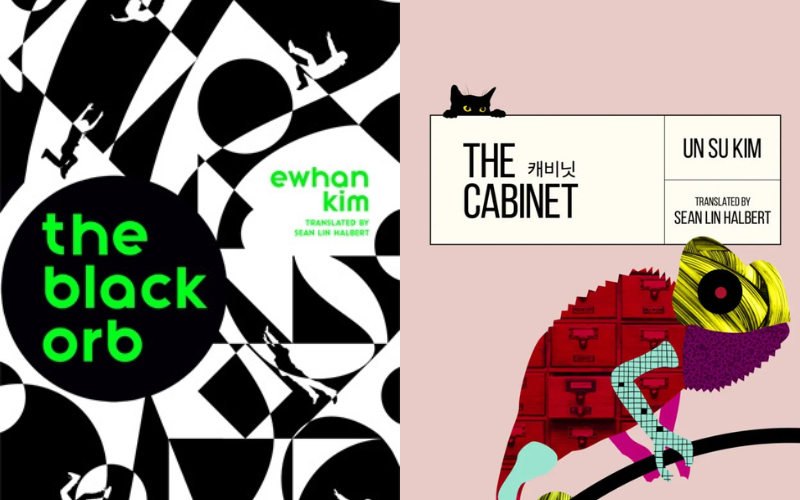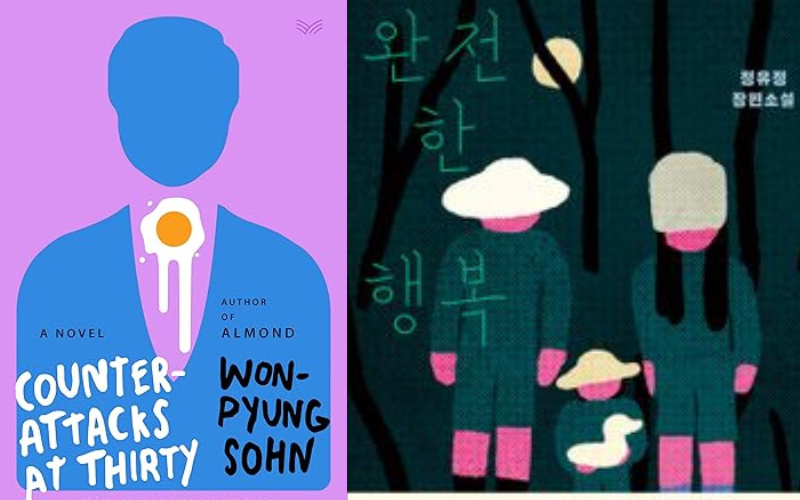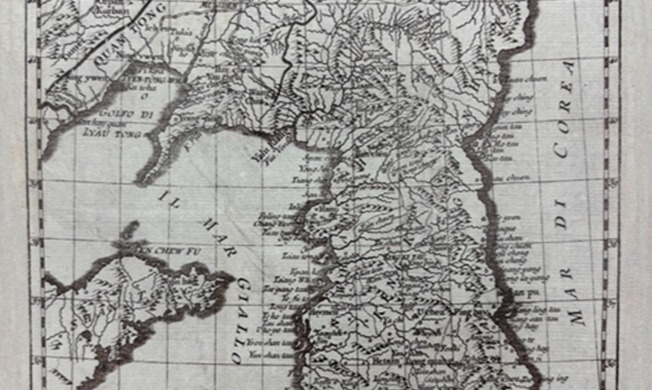- 한국어
- English
- 日本語
- 中文
- العربية
- Español
- Français
- Deutsch
- Pусский
- Tiếng Việt
- Indonesian
By Honorary Reporter Eman Elashker from Egypt
Sean Lin Halbert is an American who translates Korean-language novels into English.
Learning Korean as a hobby while majoring in physics, he won the 2018 Fiction Commendation Award from the Literature Translation Institute (LTI) of Korea. Now living in Korea, he works as a translator and instructor at the institute.

Sean Lin Halbert (left) in 2018 accepts a translation award from LTI Korea and presents an LTI award this year to his student and aspiring translator Nicole Lin. (LTI Korea)
Among his translations are those of the novels "The Black Orb" by Kim Ewhan and "The Cabinet" by Kim Un-su. The following are excerpts from a Sept. 11 interview with Halbert via Zoom.
Why did you study Korean along with your major physics?
I studied Korean as a hobby, and it wasn't until my last year of college that I had enough classes to double major in physics and Korean.
I'm interested in all East Asian languages. I'm half Taiwanese and attended a Chinese school. In college, I wanted to learn Japanese but my Korean American friends encouraged me to learn Korean as well.
Describe your journey toward becoming a translator.
I started practicing translation in 2015, and from 2015-18, I completed my master's in Korean literature. In 2018, I won an award at the LTI Korea competition, which marked my debut translation work.
I did two internships in physics but didn't enjoy working in science. I was mostly surrounded by machines and had few friends, so I preferred translating. I like the vibe of people in literature and find them more empathetic and friendlier.
What was your teaching experience at LTI Korea like?
It's interesting and difficult. I taught physics at a high school for a while, and it was easy to organize. But translation is different because there's no set curriculum like in physics. I just give my students pieces to translate, and then we discuss them together. You can't guide someone to be a good translator. It's different for everyone.

These are the covers of the English-language translations of two Korean books by Sean Lin Halbert. (Hanbooks)
Do you think a literary translator should study creative writing?
I think that the biggest requirement for good translation is to be a good writer. And you can't be good at the beginning since it takes effort and time to learn or teach writing.
When did you move to Korea and how is living there?
I've been living in Korea on and off. I first came to Korea 10 years ago, went back to the U.S. to finish my degree and returned to Korea to pursue my master's.
In general, I think life in Korea is better for me now. I didn't face many difficulties except during the era with few foreigners around, so I used to get a lot of attention. Also, the language formality system and pronunciation were confusing for me since they're very different from English.
Do you prefer science fiction since your last two works were in this genre?
It just happened and I didn't plan for it. Most of the time, I work with the publishing agency when selecting works. I'm more interested in literary fiction, but Korean science fiction is a little bit more literary than science fiction in English, so I like it, too.
Have you tried English-to-Korean translation?
I've translated academic articles from English to Korean but not literature.
Do you have someone you admire in translation?
Yes, I like Jay Rubin. He translates from Japanese to English and is the main translator of Haruki Murakami's works. Rubin's translation feels too natural, something very hard when you translate from a different and difficult language like Japanese.
What upcoming works do you have?
My translation of the novels "Counter Attacks at 30" by Sohn Won-pyung and "Perfect Happiness" by Jeong You Jeong will be published next year.

On the left is the English-language edition of "Counter Attacks at 30" and the Korean-language version of "Perfect Happiness." (Goodreads)
*This article is written by a Korea.net Honorary Reporter. Our group of Honorary Reporters are from all around the world, and they share with Korea.net their love and passion for all things Korean.
